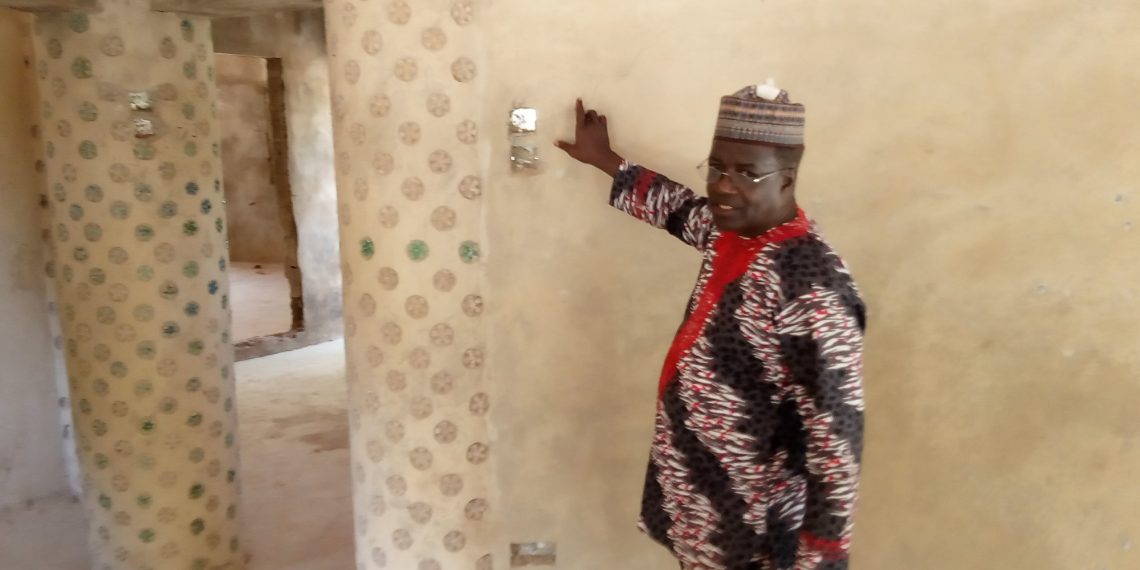Yahaya Ahmed says the house was built to encourage recycling of waste materials, create jobs and ensure a safer environment

A Nigerian has built a house in Kaduna using 14,800 sand-filled plastic bottles as bricks.
Yahaya Ahmed, an engineer and the director of a non-governmental organisation, Developmental Association of Renewable Energies in Nigeria (DARE), said the house was built by his organisation to encourage recycling of waste materials, create jobs and ensure a safer environment in Nigeria.
Mr Ahmed said workers filled the plastic bottles with sand and linked them at the neck by an intricate network of strings to build the house, which he said is the first of its kind in sub-Saharan Africa.
“It’s the cheapest house that everyone can construct without spending much money because the building materials are available on the streets and trash dump centres,” he told journalists at the site located at unguwar -Yalwa on the Kaduna Zaria road.
The house has three rooms, a toilet and a kitchen.
He said it is “20 times stronger than brick walls houses and can last for over 300 years if constructed properly and carefully. It is fireproof, bulletproof, earthquake-resistant and can adapt to all kinds of climate changes, desertification and deforestation.
“It is the cheapest house to build in this generation with waste plastic bottles on the streets polluting our environment and causing more problems like flood and other disasters in the communities.”

sand-filled plastic bottles used as bricks
‘Convenient to build’
Explaining the shape of the house, Mr Ahmed said bottle houses are often more convenient to build in a circular fashion. “The circular shape adds strength to the walls, while providing a very artistic and pleasing appearance.
“Any person with masonry skills can be used as labour in the construction of one of these homes. We have trained many youth and we are still training more youth and adults the various ways of constructing these houses across the country and some parts of Africa.”
He called for the training of more Nigerians to build plastic bottles houses.
Yahaya Ahmed standing outside his newly built plastic house
“We have plastic houses in some parts of Africa but this is the first one in the entire region of black Africa.
“Our joy is to train more youth the skills of this kind of housing so as to save our streets from the plastic bottles dominating our rivers and ponds, causing flood and other disasters.”
Speaking on the occasion, the assistant Director of African Climate Reporters, Piman Hoffman, urged the government to support renewable energy companies “to save the nation from the increasing threat of waste pollution through waste management plans.”
Mr Hoffman said “billions of plastic water and beverage bottles are discarded every year, with most making their way to landfills, the ocean, or, in poorer countries, disposed of in heaps”.

“It is really high time to encourage Nigerian engineers to embrace technology in constructing more houses that can stand all forms of ecological challenges.”
He noted that “plastics are a big threat to the existence of humans, animals and all living organisms”. He said more aquatic animals are now endangered due to the “irrational activities of dumping plastic bottles into the river and streams”.
“We must join hands toward saving aquatic animals from the threat of plastic pollution,” Mr Hoffman said.
